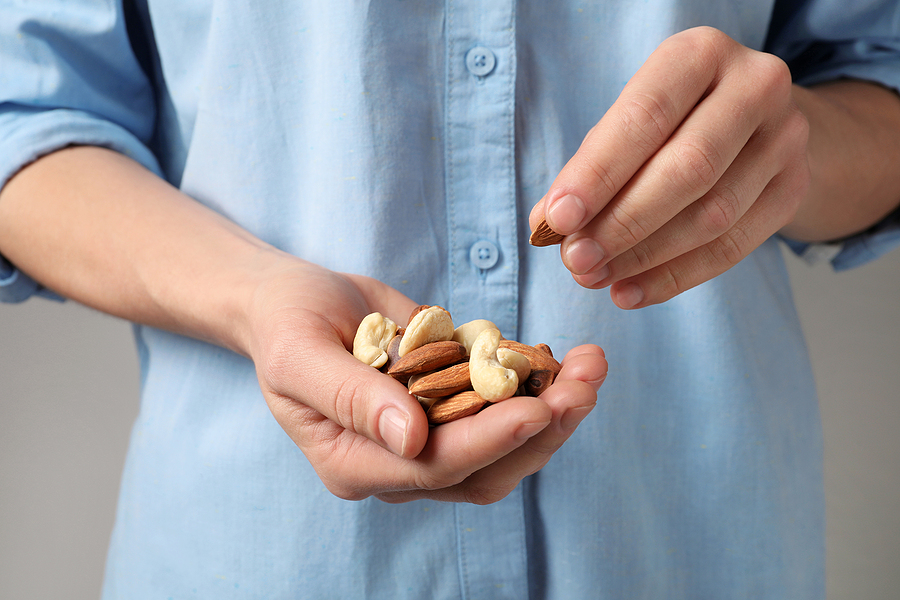Updated: Feb. 9th, 2024
- Metabolism is a complex series of chemical processes that impact all of your body’s systems.
- Weight loss is more complicated than “calories in, calories out”; different types of calories are metabolized differently in your body.
- Exercise accounts for just 10% of your metabolism, so it’s not the biggest factor in weight loss.
- Tips to boost metabolism include consuming certain foods, proper hydration, moving more, working out smarter, and attention to self-care.
Learn more about metabolism in my upcoming Reclaim Your Health: Energy, Weight & Longevity Summit.
“I just want to lose weight, but nothing I do works.” Penny’s statement was familiar – I’ve heard it time and again. Weight loss is a top priority for so many of the women I work with. They understand that maintaining a healthy weight is instrumental to feeling their best, and are truly committed to doing whatever they can to lose the extra pounds they’re carrying around. But for some of these women, that’s much harder than it seems it should be.
When I hear women like Penny tell me they’re doing all the right things and still not seeing any weight loss, I assure them it’s not their fault. There are so many factors at play — losing weight is NOT simply a matter of willpower. A lot of these women ask me if their metabolism is just too slow to ever be able to lose weight. My answer is an emphatic no!
Metabolism certainly plays an essential role in weight loss, and a lower basal metabolic rate (the number of calories your body needs just to survive in a resting state) can make a big difference. But just because you have a “slow” metabolism doesn’t mean you have no options.
You can take steps to increase your metabolism just by changing some of your regular routines and lifestyle choices. Let’s take a look at what metabolism is and then I’ll give you some simple steps to boost metabolic function so you can finally lose that weight!
What is metabolism?
When people talk about their metabolism, they’re usually talking about how it relates to their weight. Super slim people are often said to have a “fast” metabolism, while those on the heavier side may be seen as having a “slow” metabolism. But it’s a little more complex than that.
Metabolism is actually the umbrella term for the chemical processes that control all your essential body functions. Your metabolic rate is the energy your body burns each day. This is measured in calories, and also referred to as total energy expenditure (TEE). But here’s where it gets complicated — the old “calories in, calories out” theory doesn’t always hold up – meaning you can’t assume you’ll lose weight simply because you burn more calories than you take in. There are a lot of pieces to the metabolism puzzle. For example, calories are not the entire picture. One hundred calories of broccoli and one hundred calories of sugar are metabolized very differently.
Your metabolism is impacted by three main things: basal metabolic rate (BMR), exercise, and non-exercise adaptive thermogenesis (NEAT). Let’s take a quick look at what each of those means.
Basal metabolic rate
Your BMR is how many calories you burn just to stay alive. Calories are necessary to keep organs and bodily functions running smoothly, and they’re also required to turn your food into energy that can be used. This BMR is about 70 percent of total metabolism. That’s right – simple survival takes almost three-fourths of your total energy expenditure per day.
There are calculators to estimate what your BMR is, but the simple formulas used don’t account for the myriad factors that impact BMR, so it’s tough to know exactly how much energy you need for survival without more sophisticated tests.
Non-exercise adaptive thermogenesis
NEAT is the calories burned by your body during routine daily activities. Many of these activities are involuntary (like shivering when you’re cold and digesting food) or functional (like standing, walking, typing at work, or chewing). NEAT makes up 20 percent of your metabolism, and can vary each day, depending on what you’re doing. For instance, a day spent lying on the couch will burn less calories than a day spent at work, even if you have a desk job.
Exercise
And then there’s intentional exercise. So often, women are killing themselves at the gym or working out non-stop in an effort to lose weight. Exercise does burn calories on top of what your body uses for essential functioning, but this only accounts for 10 percent of the average person’s metabolism. That means that exercise alone isn’t an effective way to drop those pounds. This is especially true if you overestimate how many calories you burn, and use a workout as an excuse to indulge.
What factors impact metabolism?
Many factors influence your metabolism – some that you have no control over, and some that you can change. It’s important that you understand you can alter your metabolism by paying attention to those factors within your control; it’s not a magic number set in stone.
Some of the circumstances beyond your control include your age, gender, body size (ie, height and bone structure), and genetics. You can’t stop time, and you can’t change your genetic makeup. But knowing how these factors impact metabolism can help you make better choices about the things you can change.
Muscle mass and physical activity both impact metabolism. The more muscle you have, the more energy your body needs to survive. When you exercise regularly, you can increase muscle mass (especially if strength training is part of your routine), and your body will burn calories faster – even after you stop exercising.
Hormonal imbalances can also affect your metabolism, which is why so many women experience weight changes with pregnancy, perimenopause or menopause. There are many ways you can support hormonal balance naturally, which can in turn increase metabolism.
Environmental factors, like the weather, can also impact metabolism. And while you can’t change the weather, you can choose to get outside when it’s hotter or colder than usual, making your body work harder to maintain its regular temperature (Pay close attention to safety by dressing appropriately and staying properly hydrated).
Anything you put in your body also has an impact on metabolic rate, including food and medications. Both caffeine and nicotine can increase metabolism. Antidepressants and anabolic steroids can slow things down, resulting in weight gain even when you’re eating healthy foods. Nutrient deficiencies, like a shortage of iodine, can also slow metabolism.
Because we are all unique, even people of the same gender, age, and weight with similar lifestyles can have very different metabolisms. That’s why you can do all the same things a friend is doing and have very different results, which can be frustrating, to say the least!
Try These 5 Easy Ways to Rev Up Your Metabolism – Starting Now!
Like I told Penny, when it comes to metabolism, you have to focus on the things you can actually change. Here are five tips to give your metabolism an extra kickstart.
Eat to maximize metabolism
You can ensure that your metabolism is functioning as well as possible by being attentive to what – and when – you are eating.
Typical advice to prevent your body from hanging on to extra calories has long been to eat regular meals and snacks. However, recent research has indicated that fasting – going for periods of time without eating at all – can be an effective way to ramp up metabolic activity. A study in January of 2019 revealed that fasting increased production of 44 metabolites, substances that provide energy, including 30 previously unrecognized. Even better, the study also indicated that a number of other health benefits result from an increase in these metabolites.
Research also supports the idea that some foods, beverages, and spices can boost metabolism temporarily. Adding these into your diet regularly can help keep your metabolism functioning efficiently.
Protein takes more energy to process than carbs or fat, helps you retain muscle mass, and can keep you feeling full longer. Foods rich in iron, selenium and zinc help keep your thyroid, which regulates metabolism, working as it should.
Some studies have shown that capsaicin, found in chili peppers, could help you burn close to 50 more calories per day and may also reduce appetite. If you like spicy foods, that’s good news! Ginger and cayenne pepper are other spices that have some evidence of increased burning of calories and fat.
Other foods said to burn extra calories, stimulate fat burning and ramp up metabolism are cacao, seaweed and coconut oil.
While eating these foods likely won’t make permanent changes to your resting metabolism, if you eat them often enough as part of a healthy, balanced diet, you could give yourself a short term boost that makes a difference.
Choose your beverages wisely
You probably know that drinks filled with sugar aren’t the best path towards weight loss and good health. Even 100% fruit juice is highly processed and full of sugar that can impact your metabolic rate. Other beverages, like coffee, tea, and especially water are much better options.
Water is the obvious best choice for hydration – and being well hydrated means better overall health. Studies also show that drinking water may temporarily increase metabolism by up to 30%. Cold water, in particular, may provide a boost, since your body needs to work harder to regulate body temperature.
If you’re a coffee lover, I have good news: research has shown that coffee can increase metabolic rate up to 11%! One meta analysis of studies showed that people who consume the amount of caffeine in approximately three cups of coffee daily burn 100 extra calories per day. The same is true for both oolong and green teas. Of course, every body reacts differently to caffeine, so results won’t be the same for everyone.
Get up and move!
The more you move, the more calories you’ll burn – even without formal exercise. If you work at a desk all day, try taking a walk around the office every hour, at least. You could also try working at a standing desk, at least part of the time. Make it a point to get a little more activity by parking farther away from the door when running errands.
Remember that activities like cleaning add up too, so don’t put off chores in favor of the couch at the end of the day. Movement can be fun: put on a favorite tune and have a personal dance party, challenge yourself to get up and stretch during commercial breaks, or play a quick game of tag with your child at the bus stop. Every little bit counts!
Get the most out of your workouts
Finding time to exercise can be tricky for women in their already busy lives. The good news is, you don’t have to have hours! When you do squeeze out time for yourself make sure you include both interval training and resistance training in your routine. Lifting weights will help you build critical muscle mass that ramps up your metabolic rate. High Intensity Interval training can burn fat and help you lose weight faster than other types of training, according to recent research.
Take care of yourself
I can’t say this one enough; self-care is essential. If you aren’t looking out for your own well being, your body knows it, and will respond by protecting itself any way it can. Often, that means holding on to fat in case it needs that energy later!
Chronic stress has a profound impact on metabolism. It’s essential to find ways to reduce the stress in your life, no matter how many responsibilities you have. It doesn’t have to take long. A few deep breaths, five minutes of meditation, or anything that adds a short burst of joy to your life can all help mitigate stress. We all have stress we can’t control; but we can change how we respond to it!
Sometimes, there are deep emotional reasons your body won’t let go of extra fat. Traditional talk therapy isn’t always the answer – you may need to try some alternative therapies like EFT, body work, somatic therapy, acupuncture, or The Hoffman Process to discover and release the past trauma holding you back.
Sleep is also a crucial component to self-care and proper metabolic function. Lack of sleep and poor sleep quality have long been shown to have a detrimental effect on metabolism.
Make your metabolism work for you – whatever your circumstances!
Penny did have a slower metabolism than others – and that makes weight loss more challenging. The same may be true for you. But that doesn’t mean there’s no hope. With a few adjustments to lifestyle – including a little more movement, better sleep, focused exercise, and a well balanced diet – you can boost metabolism and feel better. The more you move, the easier it will be — so stand up and get started right now!








